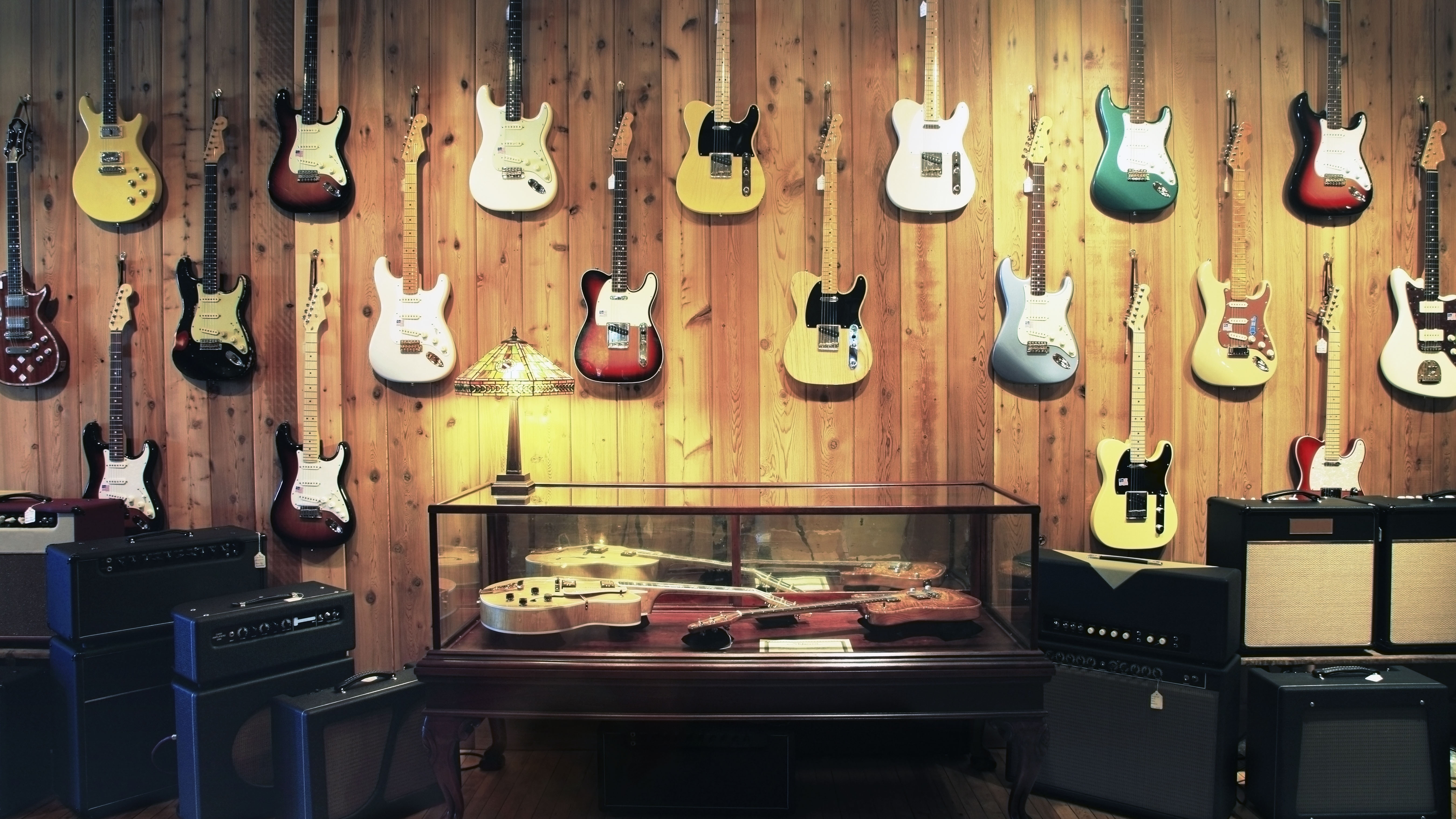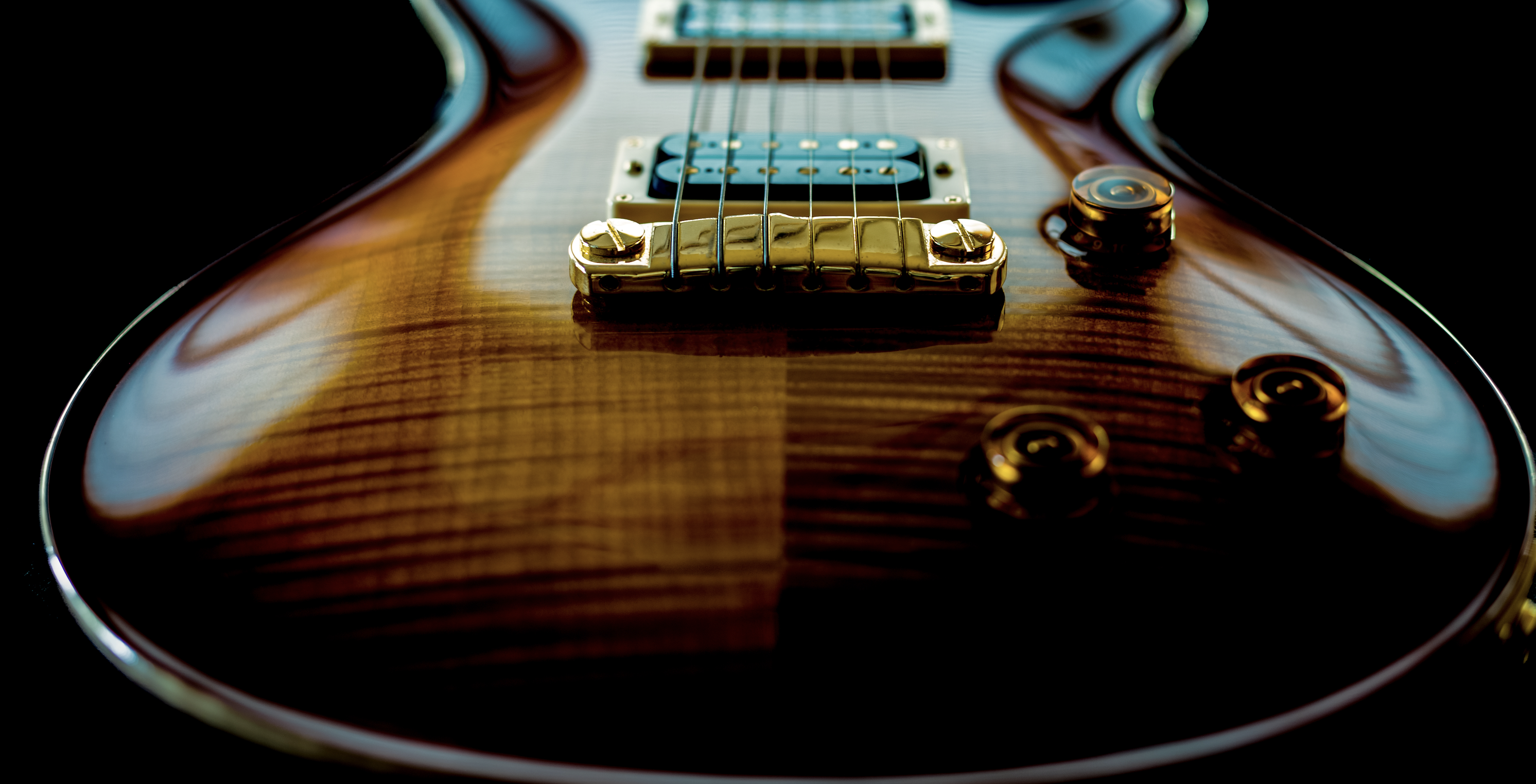The 7 key stages of Gear Acquisition Syndrome
Got GAS? Learn to recognise the signs...

You’re sweating, you haven’t slept properly in days, and you’re pretty sure that you’ve been talking to yourself.
Your search history is an endless stream of forums and reviews, and you’ve discovered that against all the odds you’re able to carry multiple completely opposing opinions in your head at the same time. You’re pretty sure that you’re about to lose it completely, possibly in a public place. You’re scared.
What you’re suffering from is a standard case of GAS, or Gear Acquisition Syndrome, and you are not alone. Every musician has suffered from this affliction at some point. It’s the all-consuming desire to expand your collection of gear, and it gets us all eventually. Bank balances have been battered and marriages destroyed, but by god there’s been some lovely gear bought.
Our handy guide to the seven stages of GAS will help you understand the signs and treat the symptoms of the syndrome. Read on, and remember: it’s going to be OK…
1. Dissatisfaction

There was a time when you loved everything about your guitar: the perfect finish, the way the neck seemed custom moulded to your hand, how it sounded when you let rip.
But of late, every time you see it you just… hate it. It makes you feel sick, like every other guitarist is playing something better and laughing at you behind your back. You feel cheated.
Your guitar simply isn’t as pretty as all those other guitars, the ones online and in the guitar magazines that have prettier finishes and raunchier pickups. The grass is greener - and so is that surf-coloured Fender you've been hankering after.
Want all the hottest music and gear news, reviews, deals, features and more, direct to your inbox? Sign up here.
2. Desire

You’ve seen the guitar you want, and it’s embedded in your brain like a want-splinter. Only this guitar can bring happiness. With it in your hands, your playing will improve and you’ll become a sexual colossus.
Without it, the future is bleak: your family will leave you, women will smirk behind your back and men will laugh in your face [exchange as appropriate for your sexual orientation].
You don’t just want it, you need it, to the point that you’re not entirely sure you’ll survive without it. It’s time to start edging towards making this new purchase a reality. To the Google machine!
3. 'Research'

If there’s one thing that defines the 21st century shopping experience, it’s the paralysing indecision that comes after a couple of hours spent poring over reviews of a product that you thought you wanted.
For musicians, the problem is much, much worse. Everyone - everyone - will have an opinion on your potential purchase, regardless of whether they’ve played it or not.
One minute you’ll be feeling positive having read a lengthy, seemingly well-informed review, the next you'll see 200 comments below it that systematically destroy every positive point.
This is GAS crunch time. For those with a low-level infestation, the internet is usually enough to delay the idea of buying another guitar or synth, at least for a few weeks. But if the GAS is strong with you, no amount of online snark can alter the course you’re on.
These people don't know, after all. They won't love it like you will. And, besides, there's a finance plan. A finance PLAN. What could go wrong?
4. The purchase!

You know what you want, and you know what you’re willing to pay. All you’ve got to do now is ring every guitar shop within a 200-mile radius to check their stock and get moving.
After a few false starts, you finally stand before the gear you’ve been lusting after, and it is glorious. You ask the guy at the counter if you can try it, desperately trying to appear like you couldn’t care less, but your hands are sweating and you’re starting to shake.
The first strum is like a bolt of lightning: this is the one. This is the guitar that will change your life and quite possibly the entire course of musical history. It is going to make everything alright for everybody.
You begin the process of haggling with the guy behind the counter, but your heart isn’t really in it and he knows it. He offers you a paltry discount and you take it, because you’ve been blinded by love - and the awesome power of destiny.
Plastic is brandished and hard cases are sought. Your heart is close to bursting with joy. Inevitably, it won’t last…
5. Guilt

As soon as you leave the shop it hits you like a Strat to the balls: the all-consuming, crippling guilt. You’ve just dropped more cash on a guitar than you’ve ever spent on your partner, your mother or your wardrobe.
You’re not sure where you’re going to find the rent, there’s no food in the house and, obviously, your music career is paying precisely nothing.
For the next week, the guilt ruins your enjoyment of the lovely new guitar. You can barely even look at it for the shame, so you hide the shiny harlot under the bed. Whenever you think about it too much, you want to cry, but nobody has any sympathy for the man that buys expensive things that he can’t really afford.
This is basically how the credit crunch started.
You are a sub-prime guitar-owner and it’s a cruel world. In penance, and because it's all your bank balance allows, you eat mainly beans.
6. Acceptance

It could be hours, days or even weeks (if you’re particularly unlucky) before the guilt lifts, but when it does you’re in for a treat.
For the beautiful instrument that you have lusted after, lost sleep over and nearly bankrupted yourself in attaining is finally yours to enjoy (providing you keep up the repayments).
Rejoice, consumer! You have temporarily satisfied your soul with a lovely New Thing! But better than that, you finally own the guitar of your dreams, the guitar that you’ll make your masterpiece with and take to your grave. Hooray! Except…
7. Relapse

The seventh, cruellest stage of GAS can hit anywhere between a year to eighteen months after the purchase, although the time passed invariably depends on the amount of cash spent and the amount of meals you've had to eat from a tin as a consequence.
If the purchase was relatively small - an effects pedal, say - then you can expect to experience GAS relatively quickly. You'll be on the bus home and looking up potential stompbox brethren on your smart phone without even realising it.
A high-end guitar? Well, you've probably brought yourself six months, maybe even a year or two. Eventually, though, the sense of glory diminishes, it gets harder to pick up and you could swear the finish is looking dull.
Actually, you recall, that vintage guitar shop has just opened down the road - you'll just pop in and pick up some polish.
After all, what's the worst that could happen?